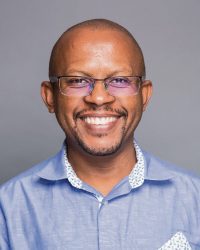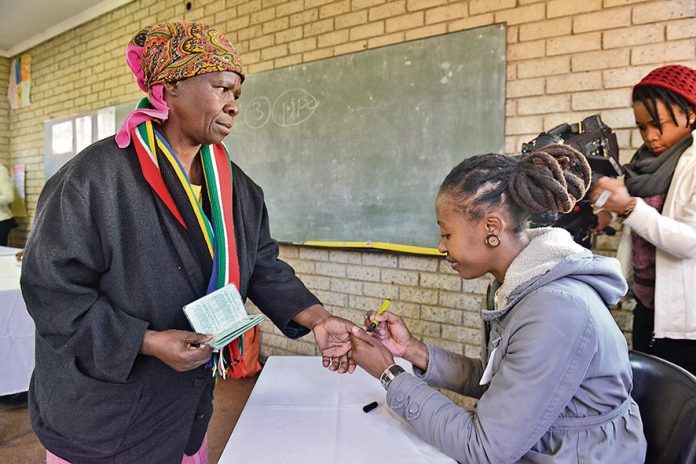Johannesburg- At last, in this strange second year of Covid-19, the 2021 local government elections have taken place. In my circle of friends, family, and acquaintances, there has been a strange array of feelings in relation to this
moment.
In the midst of the usual electioneering and politicking, one discerns a groundswell of alienation and mistrust of the political system. Sometimes it takes the form of anger directed at those doing door-to-door campaigning.
I don’t think I have seen frustration at failures of service delivery expressed on this scale before. People are gatvol.
This groundswell also takes the form of disengagement, as more and more people see the indignity of voting in a system that isn’t working and in some instances shows total disdain for the voter.
[membership level=”1″]
Shame on our society’s political classes, formations and parties. They have sucked up the passions, aspirations and expectations of our communities, extracted what they needed, then spat them out.
I had to walk with my son to the voting station to remind myself why this was one of the most important rights in our constitution.
His future and the futures of many young people are at stake if we do not act responsibly. Never before has voting in an election felt so much like a duty to me. The joy of it has gone, together with so many of the other constructive energies
associated with participation in building democracy.
My fear, one expressed by some of my friends and associates, is that in this moment of frustration, voters will simply replace one bad administration with a group of frustration, voters will simply replace one bad administration with a group of populists who change their tune depending on the audience, “trumpists”, xenophobes, demagogues, corrupt leaders and right-wingers.
I went into that voting booth with my aspirations informing my decision to vote for those I hope will help build a local government that cares about the poor and vulnerable.
This was a line of enquiry I found myself contemplating earlier in October when I was part of a group of South Africans on a study tour to Germany jointly arranged by the Hanns Seidel and Nelson Mandela foundations.
The purpose was to create space for deep dialogue and learning within the frames of the rule of law and policing.
I was reminded that in the early and mid-1990s, very similar exchanges had taken place as other countries supported South Africa’s transition to democracy and the new administration geared up for deep-rooted transformation processes.
A week before the election, I was in an intense dialogue retreat with former public protector Professor Thuli Madonsela and a group of senior journalists hosted by Jerry Mabena at Shalati Train on the Bridge.
We were deconstructing those special instruments for redress and restitution, such as land reform, black economic empowerment and affirmative action, all deemed vital to the decolonization project in South Africa.
Following rigorous and robust discussions, we concluded that they have been disappointingly implemented in ways that have undermined transformation and deepened our societal malaise.
At the heart of implementation in our country is the disconnect between the three spheres of government. This disconnect leads to a lack of delivery and accountability at the local government level.
The wrangling for power at the expense of the poor and the vulnerable by politicians and their parties is particularly noteworthy. If there was ever a time when the importance of local government was demonstrated it was with this election.
It is time for political disagreements to be set aside and service delivery is put at the centre of every decision made. Any coalition must recognize this important factor. Our people cannot wait any longer.
In the week before the election, the Nelson Mandela Foundation finally submitted its heads of argument to the Supreme Court of Appeals in the matter of the Equality Court ruling that displays of the old apartheid flag constitute hate speech.
AfriForum is appealing against that ruling in a process long-delayed by two other cases in the Constitutional Court that have relevance to the matter.
Again, I found myself questioning where our society is landing in another election year. How is it possible that nearly 30 years into democracy we haven’t begun to reckon effectively with our pasts?
Why is so much of public discourse in contemporary South Africa bordering on hate speech?
- Hatang is CEO of the Nelson Mandela Foundation. The column first appeared on its website.

To read more political news and views, click here.
Follow @SundayWorldZA on Twitter and @sundayworldza on Instagram, or like our Facebook Page, Sunday World, by clicking here for the latest breaking news in South Africa. To Subscribe to Sunday World, click here.
Sunday World
[/membership] [pmpro_signup submit_button=”Register” level=”1″ login=”1″ redirect=”referrer” short=”false” title=”Thank you for choosing Sunday World, to read this article for free, please register below at no cost.” short=”true” custom_fields=”true”]


